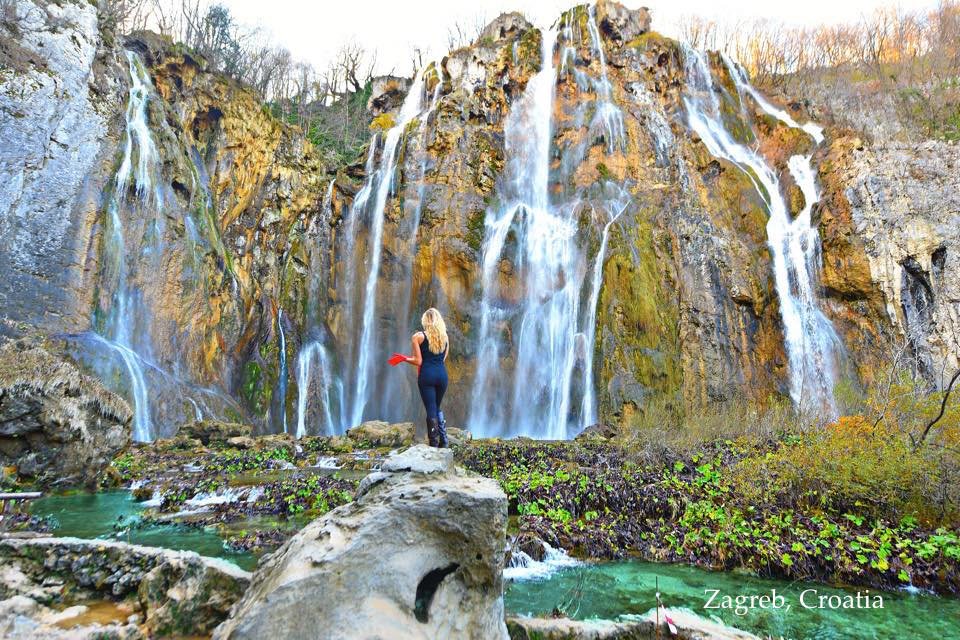Global Citizens of America is a new series that highlights Americans who dedicate their lives to helping people outside the borders of the US. At a time when some world leaders are encouraging people to look inward, Global Citizen knows that only if we look outward, beyond ourselves, can we make the world a better place.
Cassie de Pecol didn’t grow up considering herself a citizen of the world.
The Connecticut native had only traveled to Canada as a child and was home schooled. Her knowledge of the world wasn’t too extensive.
That all changed when, at the age of 18, de Pecol decided to spend her first year of college studying abroad in Costa Rica and Nicaragua, a decision that would change her life.
“I had a fear of flying, that was nerve-wracking for me, getting on a plane without my parents on it. That was first time I flew somewhere completely alone,” de Pecol told Global Citizen.
“When I landed, it was like this euphoric moment for me. At that point the fear went away. I was living with a host family and I just wanted to dive deep into their culture,” she said.
De Pecol had been bitten by the travel bug, and developed a serious interest in learning more about the world around her.
Now, more than a decade later, de Pecol has transformed into a true Global Citizen. She’s starred in a reality travel show, backpacked around Europe, launched her own business, and completed her “Expedition 196” journey earlier this year, visiting 196 countries around the world by herself in under two years, earning her a Guinness World Record.
De Pecol’s journey hasn’t been a simple one, but it offers a wealth of lessons for Global Citizens.

The Reality of Reality TV Traveling
After her study abroad trip in Costa Rica and Nicaragua, de Pecol saved money from lifeguarding and babysitting jobs in order to travel with her brother to Europe for the first time. When she got there, she said, she realized she didn’t want to come back. She spent two years traveling around the world, working odd-jobs until she landed an internship in sustainable travel consulting, an experience she used to launch her own consulting business.
“I was majoring in environmental studies and had this desire to promote sustainable tourism, and I had this entrepreneurial mindset, and so I did it and that’s where I learned how to be project oriented and persistent with work,” she said.
After that journey, de Pecol came back to the US to settle down in a job, but, perhaps unsurprisingly, the job didn’t compare to the sense of adventure she had felt overseas. She started looking around for a way out.
“I was watching TV after work, and I realized I was watching naked people run across the screen in the jungle,” she said.
The show she was watching was The Discovery Channel reality show “Naked and Afraid,” which drops two naked contestants into a remote location and films them as they survive its trials.
“I was 24 when I did it. I was like, I need to do this, I need to change my life somehow and do something radical, so I filled out a casting application for this show,” she says.

Her home-schooling in Connecticut had taught her some survival skills, but it didn’t prepare de Pecol for the wrath of online commenters who didn’t like her character on the show.
“I had this really bad edit, I was made out to be this really mean blonde stupid woman,” she says. “I was in this really bad place after that.”
Back home in the US, de Pecol struggled to pick herself up from the experience. She was crashing with a friend in Los Angeles, trying to figure out what to do next. She felt like the show had made her seem selfish and unprofessional, when she actually wanted to be creating positivity in the world, helping to make the world a better place in some way. But how?
Finding Her Way
“I just started planning this expedition because I thought, I can succumb to this experience and let it define me, or flourish from it, and use it as embers for this fire in me to see the world,” she said.
De Pecol bought a giant wall map and spent a year and a half planning a globe-trotting expedition that would focus on environmentalism and promoting peace and understanding through travel. She reached out to organizations that promoted peace, and decided to focus her efforts on breaking the Guinness World Record for the fastest time visiting all sovereign countries in order to help promote her work.

In the year before the trip, De Pecol saved $10,000 and lined up sponsors and work to help her cover the rest: about $100,00 more to complete the trip.
On July 24, 2015, she flew to Pulao. For the next 18 months and 10 days, she traveled alone around the world. And her worldview completely changed.
“I think what’s really important is leaving all preconceptions at the door of the country, going in with a completely open mind, whether it’s good or bad, and formulate your own opinion of the country based off your own experience and not judge others,” de Pecol said.
Changing Perspectives
De Pecol said she was initially afraid going into places like Afghanistan, Somalia, or Pakistan because of what she had seen in the news about them. But when she got into the countries, they were safer and more friendly than she ever could have imagined.
“People are living all over the world, just trying to live, just trying to be happy, and 99 % of the people I encountered were really kind and nice and helpful. It’s important to embrace that fact, they want peace too,” she said.

She didn’t spend long stretches in many countries — in fact in Tuvalu, an island in the South Pacific, she flew into the airport, went outside, turned around, and went back in. The country only had a couple of flights a week, and to stay any longer would have been prohibitively expensive and risked her world record. She also missed some countries she’d love to visit next: Scotland and Wales, Tahiti, and Tanzania are still on her list.
The last country on de Pecol’s tour was Yemen — which was also the one she was most afraid to go into. The visa process had been difficult, and she was afraid they wouldn’t let her leave. The media had led her to believe it would be embroiled in conflict and dangerous. But when she got there, “people are healthy and happy, living their daily lives,” she said.
The Lessons of Being a Global Citizen

De Pecol is still traveling all of the time today, though she’s able to manage a more leisurely pace now, she says. She’s working on a book about her travels and hopes to start a nonprofit organization that will help other people change the world through the United Nation’s Sustainable Development Goals, and she hopes to try and break another world record at some point.
If she has one takeaway message from her experience she hopes that other Global Citizens can learn, it’s how alike we all are, everywhere in the world. Traveling opened her eyes to that fact, and she hopes everyone else can see it, too.
“Imagine if everyone traveled to every other country in the world, imagine how much more peaceful the world would be, they’d judge so much less, understand so much more about humankind,” she said. “We all have same basic needs: a hot meal, a roof over our heads, a loving family. We come to understand that more so when we travel.”
“The more we accept and understand each other,” de Pecol said, “the more peaceful the world will be.”
